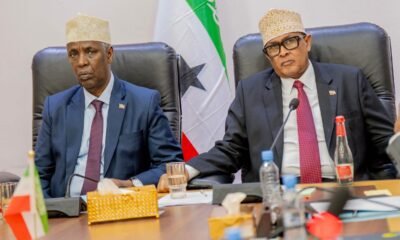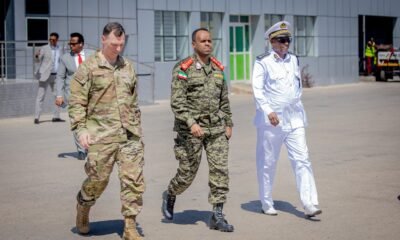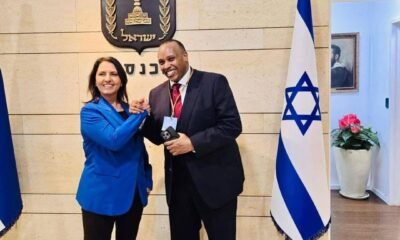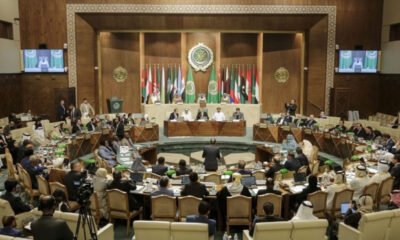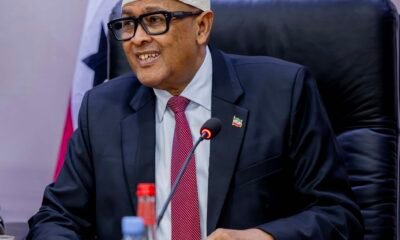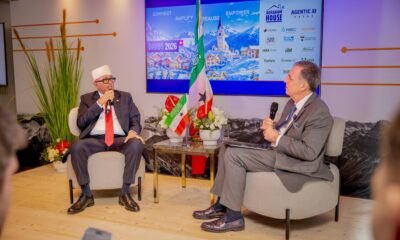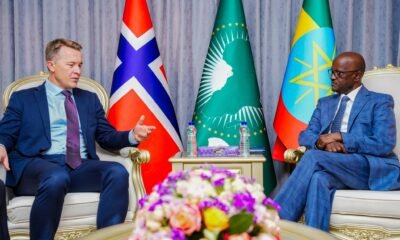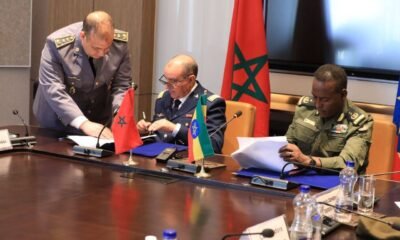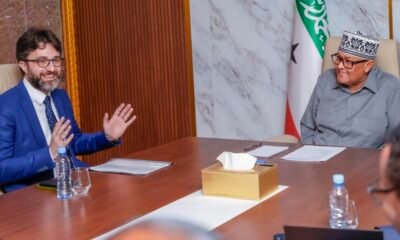Analysis
Somaliland’s New President Faces Diplomatic Balancing Act
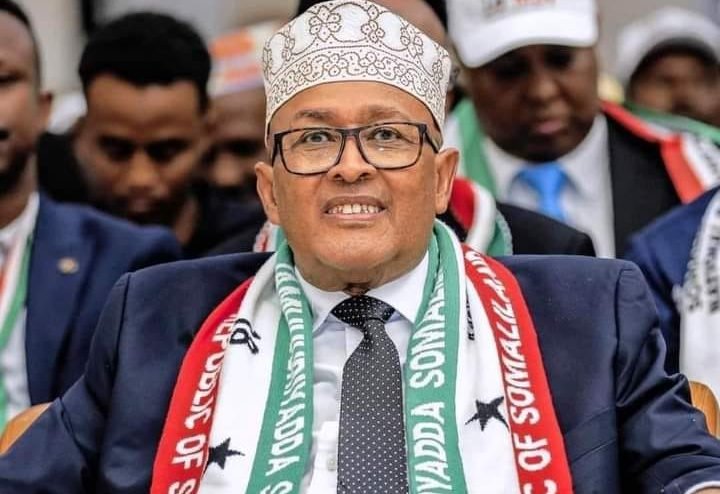
The election of Abdirahman Mohamed Abdullahi Irro as Somaliland’s president ushers in a pivotal era for Somaliland, known for its political stability in the tumultuous Horn of Africa. However, Irro’s administration must immediately grapple with regional tensions, particularly the Memorandum of Understanding (MoU) with Ethiopia, which has become a lightning rod for debate over sovereignty and regional diplomacy.
Irro, leader of the opposition Waddani Party, secured a decisive victory with 64% of the vote, defeating incumbent Muse Bihi Abdi of the Kulmiye Party. The November 13 election, Somaliland’s sixth since declaring back its 1960 independence in 1991, has been hailed as a milestone for democratic governance in the region.
International observers, including delegations from Ethiopia and the United States, commended the process as transparent and peaceful, a stark contrast to the autocratic tendencies in neighboring Somalia.
The election outcome reflects widespread support for Irro’s promises of reform and strategic governance, but it also underscores the populace’s dissatisfaction with Bihi’s administration, particularly regarding economic stagnation and unresolved political disputes.
The Ethiopia Coastal Deal
Central to Irro’s challenges is the MoU signed with Ethiopia, which would lease a 20-kilometer stretch of Somaliland’s coastline for economic and military use. In return, Ethiopia pledged to back Somaliland’s decades-long quest for international recognition.
While the agreement has the potential to bolster Somaliland’s economy and enhance its strategic partnerships, it has sparked significant criticism, with opponents arguing that it compromises sovereignty and risks entangling Somaliland in Ethiopia’s regional disputes, particularly with Somalia.
Irro has promised to review the deal to ensure it aligns with Somaliland’s national interests. This measured approach signals his intent to prioritize sovereignty while maintaining constructive ties with Ethiopia, whose support remains critical to Somaliland’s international ambitions.
The Ethiopia deal has broader ramifications in the Horn of Africa, a region marked by geopolitical rivalries and complex alliances. For Ethiopia, access to Somaliland’s coastline is a strategic boon, providing an alternative route to the Red Sea amid tensions with Eritrea and Somalia.
However, the deal risks exacerbating Somaliland’s already strained relations with Somalia, which opposes any agreements that could bolster Somaliland’s case for independence.
Irro’s ability to navigate these dynamics will be a litmus test for his administration’s diplomatic acumen. Any misstep could deepen Somaliland’s isolation or heighten tensions with regional powers, complicating its path toward recognition.
Preparing for Governance
Irro will formally assume office on November 25, following Somaliland’s constitutionally mandated transition period. During this time, his team will finalize preparations for governance, including certifying election results, resolving any disputes, and organizing an inauguration ceremony expected to attract regional and international dignitaries.
His administration will face immediate challenges, including addressing economic stagnation, strengthening state institutions, and managing internal dissent over the Ethiopia agreement.
Balancing Opportunity and Sovereignty
Abdirahman Mohamed Abdullahi Irro’s presidency represents both opportunity and uncertainty for Somaliland. His decisive electoral victory underscores public demand for change, but it also places immense pressure on his administration to deliver on promises of reform and sovereignty.
The Ethiopia MoU will be the first major test of Irro’s leadership. Striking a balance between economic opportunity and safeguarding Somaliland’s sovereignty will not only shape his presidency but also influence the region’s geopolitical landscape.
Irro’s success hinges on his ability to engage diplomatically, manage internal and external pressures, and present Somaliland as a stable and credible partner on the international stage.
Analysis
Europe’s IRGC Move Sends a Message but Needs Muscle
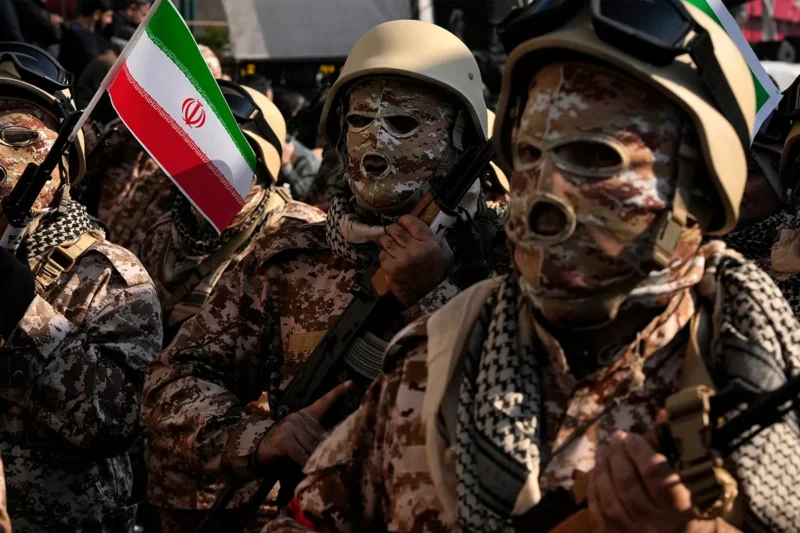
From Label to Leverage: What the EU’s IRGC Terror Designation Can and Cannot Achieve.
When the European Union formally designated Iran’s Revolutionary Guards as a terrorist organization, it broke with years of hesitation and internal legal wrangling. The move carries weight. It freezes assets, criminalizes support networks and signals that Europe now views the Guards not as a conventional state institution but as a driver of transnational violence and repression.
Yet the practical question begins where the symbolism ends. A label changes the legal environment, but it does not by itself change the political reality inside Iran.
The IRGC is not a peripheral militia. It is embedded in the country’s security services, economy and regional strategy. Any effort to weaken its influence therefore intersects with the daily lives of ordinary Iranians, the structure of the state and the balance of power across the Middle East. Treating the designation as a magic switch for regime change risks misunderstanding how resilient and adaptive the Iranian system has proven to be over decades of pressure.
The most immediate effect will likely be financial and operational. European banks and companies will move to further distance themselves from entities linked to the Guards. That can complicate the funding and logistics of IRGC-connected networks in places like Syria and Lebanon. It also tightens the legal net around procurement and technology flows that might otherwise pass quietly through European jurisdictions.
But sanctions and listings historically work as slow constrictors, not instant breakers. They raise costs and narrow options; they do not automatically produce collapse. Inside Iran, the Guards have repeatedly shown an ability to shift resources, reroute trade and deepen their hold over parts of the domestic economy when external pressure rises.
The EU’s decision also lands in a volatile domestic context. Iran has faced waves of protest driven by economic strain, social frustration and anger at repression. External actors must tread carefully. Overt attempts to choreograph internal resistance from abroad can delegitimize local movements in the eyes of parts of the population and give authorities a ready narrative of foreign orchestration.
If Europe wants its designation to amount to statecraft rather than symbolism, the next steps are likely to be less dramatic but more durable. One track is governance of the gray zones that allow sanctioned actors to keep operating. That means tighter export controls on dual-use goods, closer intelligence cooperation on illicit finance and consistent enforcement across member states so that loopholes do not simply migrate from one capital to another.
Another track is people-focused rather than regime-focused. Expanding channels for academic exchange, visas for at-risk activists, and independent media support can widen Iranian society’s exposure to alternatives without prescribing a political outcome. Protecting the digital space through stronger cybersecurity cooperation and resilience against internet shutdowns can also make it harder for any authority to monopolize information.
There is also a regional dimension. The Guards’ influence extends through partnerships and proxies across the Levant and the Gulf. Coordinated maritime security, air defense integration among regional states and de-escalation mechanisms can blunt the spillover risk if tensions rise, without turning every confrontation into a binary showdown.
Perhaps most important is clarity about ends and means. If the objective is to reduce the Guards’ capacity for repression and external militancy, then measures that chip away at their revenue streams, procurement networks and freedom of movement are coherent. If the objective is regime collapse, then Europe is entering terrain where it has limited leverage and high uncertainty over what follows.
History offers a caution. Sudden state breakdowns without agreed transition paths can produce power vacuums that invite fragmentation or new forms of coercion. Any serious conversation about Iran’s future therefore has to include engagement with a broad spectrum of Iranian civil society and opposition voices, not just pressure on the institutions of power.
The EU’s designation is consequential. It redraws legal lines and alters calculations for anyone doing business at the edges of the Guards’ vast network. But it is the beginning of a policy chapter, not its conclusion. Turning symbolism into strategy will depend less on dramatic gestures than on patient, coordinated work that constrains violence, protects society and keeps channels open for a future that Iranians themselves ultimately determine.
Analysis
Surprise in Jerusalem as Ankara Dangles Conditional Normalization
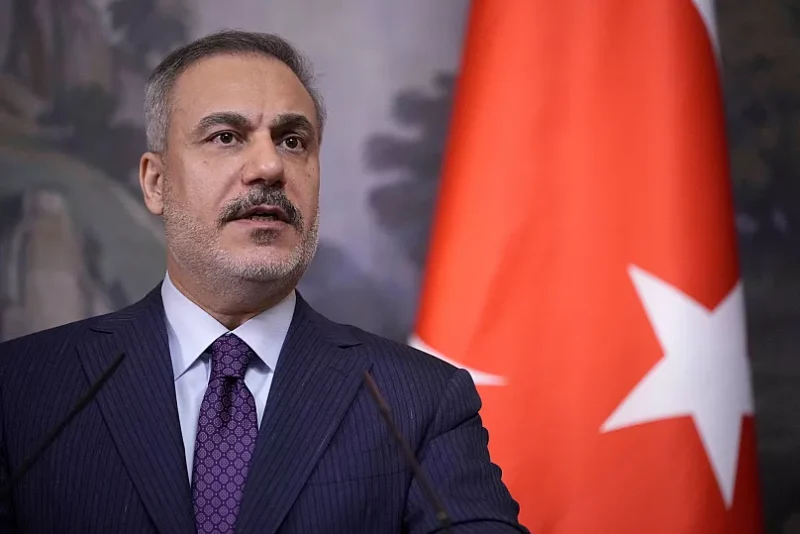
Turkey Signals Conditional Restoration of Trade With Israel, Catching Jerusalem Off Guard.
Jerusalem’s surprise at Turkey’s talk of restoring trade is less about the content of the message than the timing and messenger. For years, the Turkey–Israel relationship has been defined by a paradox: harsh public hostility alongside pragmatic back-channel coordination. Ankara’s latest signal adds a new twist by suggesting that the rupture is reversible, but only after the Gaza war ends and humanitarian access improves.
That framing matters. By calling the break “conditional rather than structural,” Turkish Foreign Minister Hakan Fidan is saying the problem is policy, not existence. In practical terms, Ankara is leaving the door ajar for normalization without abandoning its domestic narrative of standing firmly with Palestinians. It is an attempt to square two audiences at once: a Turkish public steeped in anti-Israel rhetoric and an international arena where Turkey seeks relevance in Gaza’s postwar order.
For Israeli officials, the difficulty is deciding whether this is a genuine pivot or a tactical maneuver. Mistrust runs deep. President Recep Tayyip Erdogan’s rhetoric, amplified by state-aligned media, has repeatedly crossed lines that make easy reconciliation politically toxic in Israel. The absence of ambassadors and the need to station Israeli diplomats outside Turkey underline how abnormal relations have become.
Yet Israel has never treated Turkey as an outright adversary. Security channels have stayed alive, and both sides understand the value of limited coordination in a volatile region. That is why Fidan’s language, while abrasive in its criticism of Israel’s conduct in Gaza, still resonates in Jerusalem as potentially workable. If the rupture is truly conditional, then a pathway back exists.
The immediate catalyst is Gaza’s uncertain endgame. Washington is pushing for arrangements that would stabilize and rebuild the enclave once fighting stops. Turkey wants a seat at that table. Ankara’s recent role in hostage diplomacy impressed the White House, and U.S. planners see Turkish construction and logistics capacity as useful for reconstruction. Israeli objections to Turkish troops in any stabilization force are firm, but blocking Turkish companies from rebuilding is far less likely. Trade, not boots, could become the bridge.
This is where Ankara’s signal begins to look strategic. By tying trade restoration to the war’s end and humanitarian access, Turkey positions itself as both critic and future partner. It lowers diplomatic friction with Jerusalem just enough to make Turkish participation in Gaza projects politically feasible in Washington. At the same time, it preserves leverage by keeping normalization contingent on Israeli behavior.
Israel’s unease is also shaped by Turkey’s moves beyond Gaza. Ankara’s military footprint in northern Syria, its campaign against Kurdish forces, and reports of support for Syria’s current leadership raise alarms in Jerusalem about Turkish air and ground capabilities close to Israel’s northern approaches. Add to that Turkey’s mediation between Washington and Tehran and Fidan’s claim that Israel is pressing for U.S. military action against Iran, and the trust deficit widens further.
Still, both capitals recognize the relationship is not irreparable. A limited thaw could begin with practical steps that avoid symbolism. Resuming trade flows would test intentions without requiring dramatic gestures. The return of Turkish Airlines to Tel Aviv would signal normalcy, though the market has largely adjusted with Gulf carriers filling the gap. Quiet restoration of consular presence could follow, long before ambassadors return.
The obstacles are real. Turkish public discourse remains severe, and Israeli politics offers little appetite for rapprochement while Gaza remains unresolved. But the logic of conditionality creates space for incrementalism. It allows Ankara to claim principle and Jerusalem to claim pragmatism.
In the near term, a full reset is unlikely. What is plausible is a transactional easing driven by U.S. priorities for Gaza’s postwar phase. If the guns fall silent and aid moves freely, Ankara can argue that its conditions have been met. Jerusalem, wary but realistic, may accept a narrow opening that serves reconstruction without conceding on security.
The surprise in Jerusalem reflects how unusual it is to hear conciliatory subtext from Ankara amid hostile headlines. Whether that subtext becomes policy will depend less on speeches than on events in Gaza. If the war ends and reconstruction begins, Turkey is signaling it wants back in the room. Israel’s response will determine whether that room has a door.
Analysis
Why Somaliland Now Sits at the Center of Global Strategy
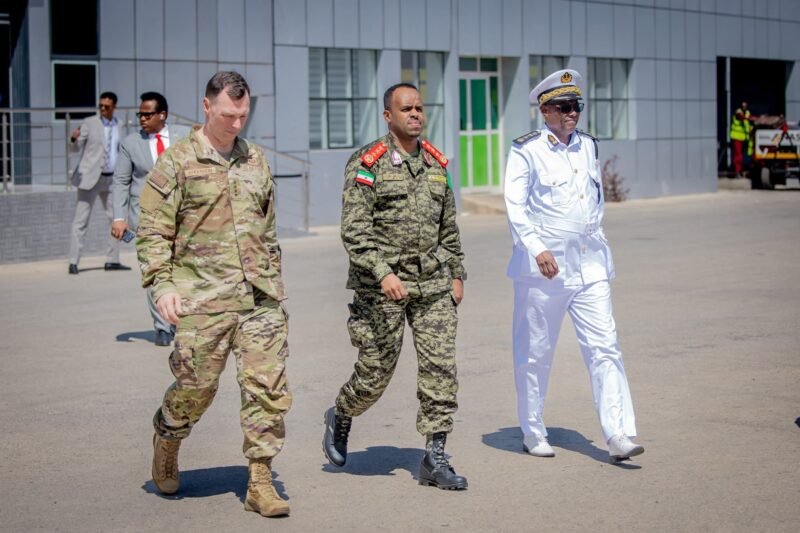
Ports, Power, and the Red Sea: Why Somaliland Now Sits at the Center of Global Strategy.
Somaliland sits beside the Bab el-Mandeb, a maritime chokepoint so critical that its geography transcends regional relevance and becomes a lever of global power. In today’s geopolitical climate, the Red Sea is rapidly evolving into a corridor of coercion, where the ability to keep transit open determines the flow of trade, energy, and strategic timelines. This is not a localized contest but a global one, and the absence of sustained Western engagement is quietly opening space for revisionist powers to shape the rules.
China, Russia, and Turkey are steadily expanding their footprint across the Horn of Africa, converting presence into basing options and diplomatic gravity. Their method is not built on democratic persuasion but on structural entanglement: ports that double as political leverage, security dependencies that translate into elite patronage networks, and narratives that rebrand coercion as partnership.
The challenge they pose to the West is blunt—either compete for these chokepoints or consent to being governed by them.
For too long, Western policy has treated Somaliland as a diplomatic anomaly rather than what serious strategists recognize: essential terrain. International recognition remains trapped in procedural inertia, but on the ground Somaliland operates as a functioning, secure polity. In contrast to Somalia’s ongoing struggle with terrorism, Somaliland has cultivated internal stability capable of supporting durable partnerships.
That stability carries regional consequences. It offers Ethiopia—landlocked, rapidly growing, and precariously dependent on Djibouti—a critical outlet through the Berbera corridor, reducing the vulnerability of a national economy exposed to chokepoint politics.
Here lies a rare strategic opening for the United States. Somaliland has signaled, through institutional development and a market-oriented outlook, that it is prepared to integrate into a rules-based trade and security architecture. U.S. recognition should be understood not as diplomatic charity but as strategic alignment with the entity that actually governs and secures the territory.
Prolonged ambiguity does not preserve neutrality; it rewards adversaries who entrench influence without waiting for perfect paperwork.
That alignment is further reinforced by an emerging convergence between Somaliland, the United Arab Emirates, and Israel. Each contributes a distinct pillar to regional stability: Somaliland supplies the geography and resource potential; the UAE brings capital and logistical sophistication; Israel offers security innovation and technological expertise in water and agriculture—capabilities essential for sustaining a desert economy. Together, they raise the operational costs for any hostile actor seeking to manipulate the Red Sea corridor.
Taiwan’s engagement adds another revealing dimension. By bypassing traditional diplomatic constraints, Taipei has helped build Somaliland’s digital and health infrastructure, demonstrating that in contested environments, influence flows most durably from those who expand tangible state capacity. It is a model of functional diplomacy adapted to a competitive era.
Ultimately, the traditional diplomatic map is being replaced by one defined by logistics and infrastructure. The United States must move beyond viewing the Horn of Africa as a zone of episodic crisis and recognize it as a primary theater of strategic competition. That means deepening maritime security cooperation, backing transparent investment frameworks, and accepting a simple reality: if the West remains absent, the Red Sea corridor will not stay neutral. It will become hostile by default.
Power today speaks through ports and corridors. And nowhere is that language more fluently articulated than in Somaliland.
Analysis
Is Trump’s Clash With Ilhan Omar Fueling the Minnesota Crisis?
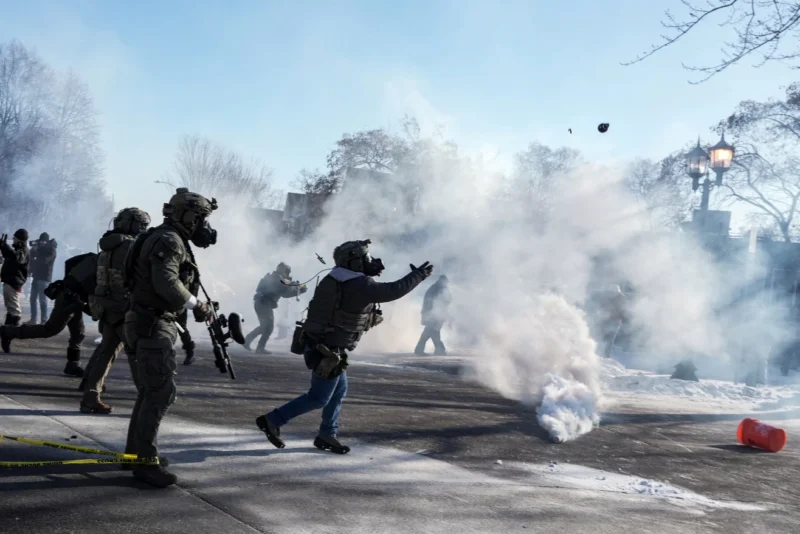
How Rhetoric, Power, and Policing Collided: How Trump’s War With Ilhan Omar Echoed in Minnesota’s Bloodshed.
When political vendettas meet armed federal power, local tragedy becomes national reckoning.
The violent standoff now gripping Minnesota did not emerge in a vacuum. It unfolded against the backdrop of a long and bitter political feud between President Donald Trump and Rep. Ilhan Omar — a clash that, while not directly responsible for the shootings, has helped shape the climate in which they occurred.
Trump’s recent verbal assault on Somali Americans and Omar, one of the first Somali Americans elected to Congress, marked a sharp escalation in a rivalry that has long fused identity politics, immigration, and raw executive power. At a Cabinet meeting, the president accused Somali Americans — without evidence — of stealing billions from Minnesota and “contributing nothing,” dismissing Somalia as “not even a nation.” He went further, saying Omar “shouldn’t be allowed to be a congresswoman” and should be “thrown out of the country.”
Senior Democrats immediately condemned the remarks as xenophobic and dangerous, warning that such language risks not only marginalizing an entire community but also feeding extremist propaganda abroad. Yet the domestic impact may be even more immediate: the rhetorical framing of a community as suspect or hostile has consequences when federal force is deployed in its midst.
That dynamic now frames the crisis in Minnesota, where two U.S. citizens — Alex Pretti and Renee Good — were killed in encounters with federal agents amid a sweeping immigration crackdown. The administration says it sent 3,000 federal agents to deport undocumented migrants with criminal records. But what many Americans have seen instead are masked, heavily armed officers operating in SUVs, sudden escalations caught on cellphone videos, and federal authorities denying local investigators access to shooting scenes.
The political stakes are profound. Trump insists Democrats are to blame for “Democrat ensued chaos,” portraying the deaths as collateral damage of liberal obstruction. But there is no evidence voters signed up for federal units roaming city streets or for erosions of constitutional protections, including Fourth Amendment safeguards against unreasonable search.
What links this moment to Trump’s feud with Omar is not causality, but climate. For years, Omar has embodied, in Trump’s political narrative, a fusion of immigration, Islam, and dissent. By casting her — and by extension her community — as illegitimate or dangerous, Trump has helped normalize the idea that Minnesota is not simply a state enforcing the law, but a battleground against internal enemies.
That framing matters when officers pull triggers.
The administration’s response to Pretti’s killing deepens the concern. Senior officials portrayed him as a would-be attacker, despite video footage suggesting he was filming agents, disarmed, and then shot at close range. The insistence on denying visual evidence echoes Trump’s broader political method: challenge observable reality until power itself becomes the arbiter of truth.
This is why Minnesota now feels like more than a tragic local story. It is becoming a test case for how far federal power can be stretched under the banner of immigration enforcement — and how rhetoric at the highest level shapes the moral boundaries of that power.
Former presidents Bill Clinton and Barack Obama have both described the moment as a “wake-up call,” warning that core American values are under assault. Even Republican Gov. Kevin Stitt admitted on CNN that Americans “don’t like what they’re seeing.”
The fight between Trump and Ilhan Omar did not cause the Minnesota shootings. But it helped construct the political atmosphere in which such violence becomes easier to justify, harder to question, and dangerously routine.
And that, more than any single bullet fired, is what should most trouble the nation.
Ilhan Omar Condemns Trump’s Plan for Military-Led Deportations, Calls it ‘Un-American’
Trump Says Somalia Won’t Take Ilhan Back — Omar Explodes Online
Conservative Watchdog Group Accuses Ilhan of Violating Federal Election Campaign Act
Raids, Fraud Probes and Trump Rhetoric Put Somali Minnesotans on Edge
How a Trump–Ilhan Omar Political Cartoon Went Viral in Somalia—and Why It Matters
Ilhan Omar’s Daughter Jobless and Selling Old Clothes After Anti-Israel Arrest Fallout
US Lawmakers Call for Investigation Into Ilhan Omar’s Citizenship
Watchdog Demands Ilhan Omar’s Salary Be Docked Over Unpaid Student Loans
Analysis
Missiles vs. Carriers: Trump Corners Iran’s Last Red Line
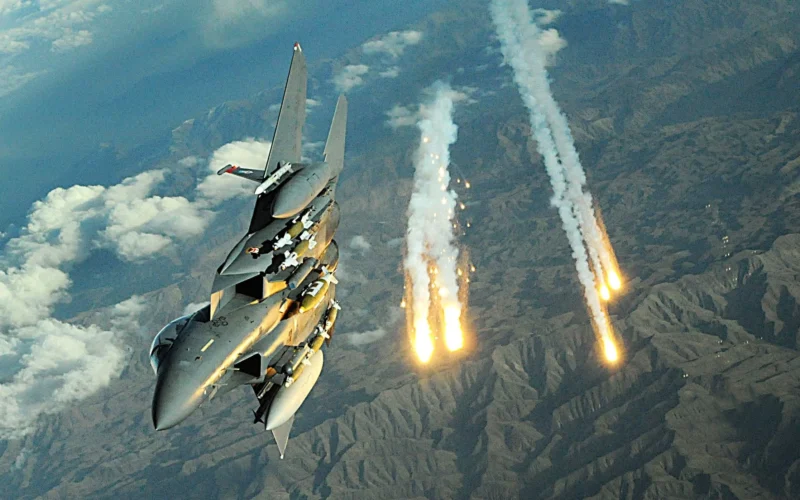
Trump’s Armada Tests Iran’s China-Fuelled Missile Rebuild in Post-Protest Standoff.
The streets of Tehran may be quiet again, scrubbed clean of blood and broken slogans, but the crisis between Washington and Tehran has not receded—it has hardened.
As Iran’s protest movement collapses under brutal repression, Donald Trump appears to be shifting from rhetorical pressure to military positioning. The USS Abraham Lincoln strike group has gone dark en route to the Arabian Sea. Additional carrier groups are moving through the Mediterranean and Atlantic. U.S. F-15s have quietly redeployed from Britain to Jordan. This is not theater. It is preparation.
The paradox is stark: Trump promised rescue, but arrived after the rebellion was crushed. Thousands are dead, tens of thousands imprisoned. For many Iranians, American “help” feels less like salvation than a belated gesture aimed not at the people, but at the regime.
Yet Washington’s focus is no longer protest. It is deterrence—and possibly destruction.
What has shifted the balance is not merely U.S. firepower, but Iran’s rearmament. Intelligence assessments suggest Tehran, aided by Chinese chemical imports, has rebuilt solid-fuel production capacity sufficient for hundreds of ballistic missiles. The regime, humiliated by last year’s Israeli decapitation strikes, has gone underground—literally and strategically. Missile units are dispersed. Leadership rotates through safe houses. Communications are hardened. Iran is no longer improvising; it is entrenching.
Trump reportedly hesitated last week on ordering strikes, pressured by Gulf states fearful of retaliation and by Israel’s concern that its defenses could not absorb a sustained missile assault. Those constraints are now being addressed. Patriot and THAAD systems are reinforcing U.S. bases. Israel is recalibrating its tolerance threshold. In effect, Washington is preparing not just to strike—but to absorb the consequences.
That is the most dangerous phase of escalation.
Iran’s missile program, though degraded, remains formidable. Dozens of missiles penetrated Israeli defenses during last year’s exchanges. Even limited breach rates can inflict outsized damage on desalination plants, energy hubs, and civilian infrastructure across the Gulf. Missile warfare favors offense. And Tehran knows it.
The regime’s calculus has changed. Having lost legitimacy at home, it now relies almost entirely on coercion and external defiance to survive. Where restraint once served diplomatic survival, ferocity now serves political continuity. Friday sermons in Tehran no longer speak of patience, but of targeting “every base, every interest.”
China’s role is equally revealing. Beijing has not armed Iran directly with air-defense systems, but it has enabled missile production by supplying chemical precursors. That is strategic ambiguity in action—fueling confrontation without triggering accountability.
Trump now faces a credibility trap of his own making. After issuing explicit threats, restraint risks appearing as retreat. He has seen what Obama’s red line failure did to American deterrence. For Trump, inaction now would echo weakness.
Yet force carries its own costs. Airpower alone rarely topples regimes. Iran is not Libya. There are no advancing rebels, no collapsing institutions—only a hardened state capable of projecting pain across borders.
This standoff is no longer about protests or nuclear files. It is about whether deterrence still governs the Middle East—or whether escalation has become its new language.
And in that language, both sides are now fluent.
Analysis
Inside the Growing Campaign to Remove Trump
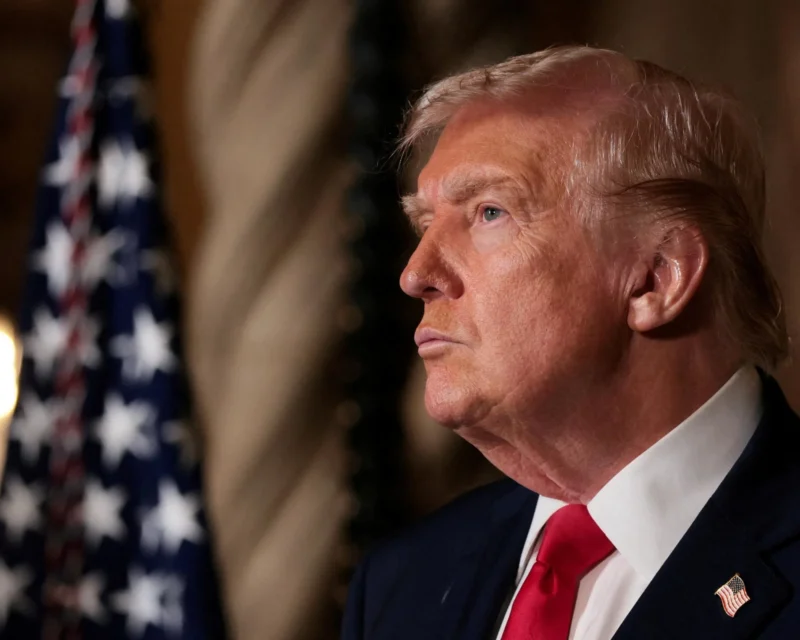
Trump Under Siege Again: Why Impeachment Talk Is Rising Again in America And The Return of America’s Impeachment Wars.
Less than a year into Donald Trump’s second term, the word “impeachment” has re-entered Washington’s bloodstream. Once again, America finds itself locked in a familiar cycle: a president governing through confrontation, institutions straining under political pressure, and an opposition searching for constitutional leverage.
What makes this moment different from Trump’s first presidency is not the rhetoric — it is the shifting coalition behind it.
The push to remove Trump is no longer confined to Democrats and progressive activists. A growing number of conservative figures, right-wing commentators, and former Trump allies have begun distancing themselves from a presidency they now describe as destabilizing rather than disruptive in a productive sense. Public petitions, legal appeals, and activist campaigns are multiplying, feeding a narrative that Trump’s leadership has crossed from controversial into dangerous.
Yet the constitutional reality remains unforgiving. Removing a sitting U.S. president is not driven by online petitions or street protests, but by numbers in Congress. Impeachment begins in the House of Representatives and requires only a simple majority. But removal demands a two-thirds supermajority in the Senate — a threshold that has never been reached against a president in American history.
Trump, already the only president to be impeached twice, understands this arithmetic well. His warnings to Republicans about the importance of the 2026 midterms are not rhetorical flourishes. They are survival strategy. If Democrats regain control of Congress, impeachment becomes politically possible — though still far from guaranteed.
What is fueling this renewed pressure is not a single scandal but a pattern. Trump’s aggressive foreign policy posture, bruised alliances in Europe, escalating disputes over trade and security, and his readiness to bypass traditional diplomatic channels have unsettled even some longtime supporters. His recent confrontations over Greenland, tariffs, and NATO cooperation have deepened concerns that the presidency is being used less as a stabilizing force and more as a geopolitical battering ram.
Domestically, Trump’s sweeping executive actions and unapologetic centralization of power have revived old fears about democratic erosion. Critics argue that while the system remains intact, the norms that sustained it are under sustained stress.
Still, impeachment remains more political theater than imminent outcome.
History offers sobering perspective. Andrew Johnson, Bill Clinton, and Trump himself were impeached — none removed. Richard Nixon resigned only when bipartisan collapse made survival impossible. Today’s America is far more polarized than Nixon’s era, making such bipartisan convergence exceedingly rare.
The campaign against Trump, therefore, is less about removing him tomorrow and more about defining the battlefield for 2026. It is about shaping public opinion, weakening institutional alliances, and preparing the ground should political winds shift.
In that sense, impeachment talk is not yet a constitutional crisis — but it is a political warning signal.
Trump may well finish his term. But the noise surrounding his presidency is no longer just opposition. It is the sound of a system testing its own limits — again.
Analysis
Syria Is Not One War — It’s Four Fronts Colliding at Once
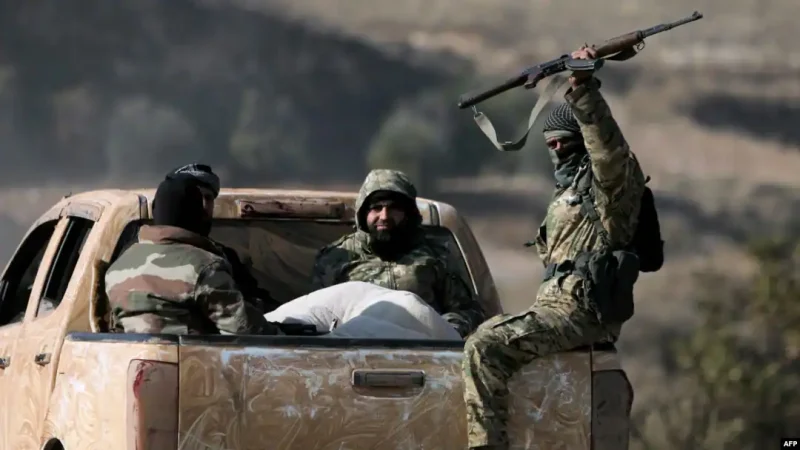
Who Controls Syria Today and Why Fighting Between Damascus and the Kurds Is Escalating.
The latest fighting in Syria is often described as a simple clash between the new government in Damascus and Kurdish forces. That framing is convenient — and dangerously incomplete. What is unfolding is not a single conflict, but a collision of unfinished wars, rival governance models, and unresolved regional agendas.
Syria today is a fractured state in both territory and authority.
The Syrian Democratic Forces (SDF) still control most of eastern Syria, including large parts of Hasakah, Raqqa countryside, and areas along the Euphrates. Though Kurdish-led, the SDF is a multi-ethnic force built with U.S. backing to defeat ISIS. Its military backbone comes from the YPG and YPJ, groups that proved decisive against ISIS but remain toxic in Ankara due to their historical ties to the PKK. This alone guarantees permanent tension with Turkey — and by extension, with any Syrian government aligned with Ankara.
Civilian governance in the east is handled by DAANES, a heavily Kurdish, left-leaning administration that functions as a de facto one-party system. While relatively stable, it lacks international recognition and faces growing pressure from Arab tribes who feel marginalized — a fault line now being actively exploited.
On the other side stands the Syrian Transitional Government (STG), born from the rapid collapse of the Assad regime after Hayat Tahrir al-Sham’s lightning offensive in late 2024. Under Ahmed al-Shara’a, HTS rebranded from jihadist insurgency into state power almost overnight. Damascus, Aleppo, Homs, and Hama are now firmly under STG control, backed by Sunni Arab support, Turkish influence, Gulf funding, and quiet U.S. engagement.
But legitimacy remains fragile.
The STG has clashed with Alawites in Latakia, Druze in Suwayda, and Kurds in Aleppo, reinforcing fears among minorities that Damascus is replacing Assad-era centralism with a new Sunni-dominated order. Promised integration of the SDF into a national army collapsed, and armed confrontation filled the vacuum.
Turkey still controls pockets of northern Syria through proxy forces. The Druze run Suwayda as a closed autonomous zone. Israel holds a buffer near the Golan. No single actor governs Syria — they merely manage pieces of it.
The most dangerous shift now lies east of the Euphrates. Arab tribes along the river valley are realigning toward Damascus, threatening to peel away SDF-held territory from within. This region has long been a corridor for ISIS, militias, and foreign interference. If it ignites again, the conflict will not stay local.
In short, Syria’s war continues because the state was rebuilt without consensus. Damascus seeks unity through force. The Kurds seek survival through autonomy. Regional powers see opportunity, not reconciliation. Until those equations change, Syria will remain divided — not by borders, but by unresolved power.
Analysis
Why Putin Is Silent on Maduro’s Abduction—and the Limits of Putin’s Power
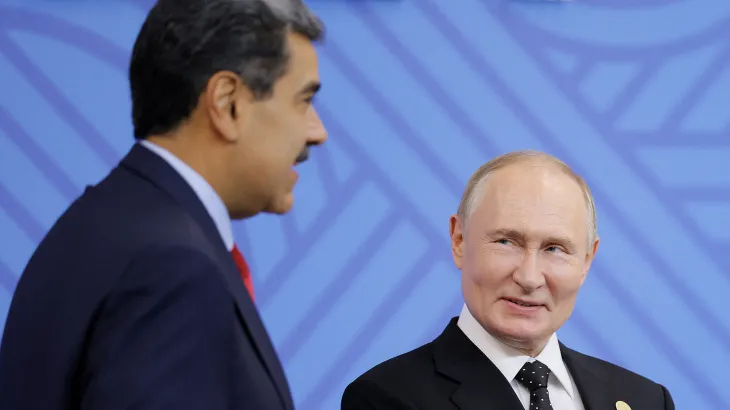
LEFT BEHIND: How Maduro’s Capture Exposed the Limits of Putin’s Power—and What It Reveals About a Shifting World Order.
When U.S. forces dragged Venezuela’s Nicolás Maduro from his bedroom and flew him to New York to face drug-trafficking charges, Moscow issued a ritual protest. President Vladimir Putin, however, said nothing. For a leader who prides himself on loyalty to allies and defiance of American power, the silence was striking—and revealing.
On Russian social media, the irony spread fast. A viral meme paired Putin’s oft-repeated line, “We don’t give up on our own,” with photographs of leaders he once called key allies: Muammar Gaddafi, dead; Viktor Yanukovych, exiled in Russia; Bashar al-Assad, toppled and flown to Moscow in 2024; and now Maduro, captured by U.S. commandos. The message was blunt: allegiance to Moscow offers no guarantee of rescue.
Russia’s foreign ministry condemned the operation as an “unacceptable act of armed aggression.” But Putin’s refusal to echo even that language underscores a cold calculation. Moscow’s defense pact with Caracas was deliberately vague, offering no automatic military response. And the Venezuelan alliance, long more symbolic than strategic, was never worth a direct confrontation with Washington.
Analysts say the fallout cuts two ways. “Putin’s prestige took a hit,” said Alisher Ilkhamov, a London-based Central Asia analyst. “Maduro was Russia’s most loyal partner in Latin America.” Yet the loss may be outweighed by a larger prize: a world order increasingly shaped by force rather than law—an environment Russia believes favors its own ambitions in Ukraine and across the former Soviet space.
Some observers suspect Maduro was quietly written off months ago. After last summer’s Anchorage summit between Trump and Putin, speculation grew that the two leaders discussed informal spheres of influence. The logic is transactional: Washington asserts dominance in the Western Hemisphere; Moscow demands latitude closer to home. Trump’s parallel push to acquire Greenland and expand U.S. access to Arctic energy routes only reinforces that reading.
Russia may even see economic opportunity ahead. As its mature oilfields decline, the massive Bazhenov shale formation in western Siberia looms large. U.S. firms possess the technology Russia lacks. In this view, tolerating Maduro’s fall could smooth future cooperation—while keeping China at bay from strategic energy assets.
There is also fear in the Kremlin. The speed and precision of Maduro’s capture exposed a vulnerability every autocrat understands. “What terrifies Putin most is that someone close to Maduro leaked his whereabouts,” said Galiya Ibragimova of the Carnegie Endowment. The likely response, she argues, is tighter security and deeper paranoia—not rapprochement with Trump.
Publicly, pro-Kremlin voices are spinning the episode as proof of Western “imperialism” destined to fail. Privately, the lesson is harsher. Russia did not intervene for Assad. It did not intervene for Maduro. Silence, in this case, is not indifference—it is strategy.
And for Moscow’s remaining partners, it is also a warning.
-

 Analysis11 months ago
Analysis11 months agoSaudi Arabia’s Billion-Dollar Bid for Eritrea’s Assab Port
-

 Interagency Assessment2 months ago
Interagency Assessment2 months agoTOP SECRET SHIFT: U.S. MILITARY ORDERED INTO SOMALILAND BY LAW
-
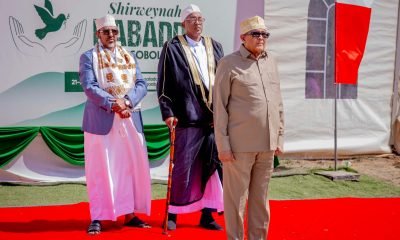
 Somaliland3 months ago
Somaliland3 months agoSomaliland Recognition: US, UK, Israel, and Gulf Bloc Poised for Historic Shift
-

 EDITORIAL1 year ago
EDITORIAL1 year agoDr. Edna Adan Champions the Evolving Partnership Between Somaliland and Ethiopia
-
Top stories2 years ago
Ireland, Norway and Spain to recognize Palestinian state
-

 Russia-Ukraine War6 months ago
Russia-Ukraine War6 months agoFibre-Optic Drones Shift Ukraine’s Drone Warfare
-

 ASSESSMENTS10 months ago
ASSESSMENTS10 months agoOperation Geel Exposes the Truth: International Community’s Reluctance to Embrace Somaliland as a Strategic Ally
-
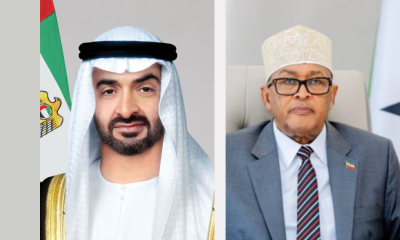
 Somaliland1 year ago
Somaliland1 year agoSomaliland and UAE Elevate Ties to Comprehensive Strategic Partnership




